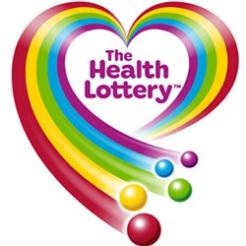An independent impact assessment has shown that the effect of the Health Lottery on the National Lottery is no more than £300,000 a week, the High Court was told on Friday.
The calculation is a far cry from the £1m per week that Camelot claimed it was losing in National Lottery sales since the Health Lottery launched.
The new figure was disclosed by Thomas Sharpe QC, representing the Health Lottery as an interested party to Camelot’s application for a judicial review of the Gambling Commission’s refusal to conduct a wholesale review of the Health Lottery.
He said that the impact assessment by Nera Economic Consulting, which was commissioned by DCMS, the Gambling Commission and the National Lotteries Commission and presented to ministers in April, showed that “there is an impact on the National Lottery, but the economists say it could be immaterial or around £300,000 a week”.
Health Lottery 'still making a loss'
Sharpe then sought to dispel the “misconception” that Health Lottery owners Northern & Shell “are making a bomb out of this”.
He told the court the Health Lottery had so far spent more than £29m getting the operation up and running, had invested time and money engaging 36,000 resellers, and “it is fair to say the project is still running at a weekly loss”.
“The business plan envisaged significantly higher weekly lottery sales than has in fact occurred.
“They have not reaped all the economies of scale they hoped they would.”
Sharpe told the court that the Health Lottery had only forged ahead with the investment because the licences had been granted by the Gambling Commission and because of the “frequent representations from the Commission that if we got it right and were compliant, we could proceed”. If Camelot wanted to challenge the Health Lottery in the courts it should have done so very soon after its launch, instead of waiting until now when so much time and money had been invested in setting up the infrastructure.
He told the judges that if Camelot were to succeed in a judicial review, it would inevitably seek revocation of Health Lottery licences. This would be immensely detrimental to the good causes that benefit from ticket sales.
“The first charge on the revenue is and always will be good causes,” he said. “That is one of the attractions of the Health Lottery to the community interest companies.”
While retailers and IT network operators are paid on a percentage basis, good causes receive funds “come what may”. And that creates risks for the Health Lottery, Sharpe said.
“The Health Lottery gets the residue after good causes, prizes, and admin costs.”
'Luck has not been kind to the Health Lottery'
Sharpe added that players’ chances of winning the National Lottery is one-seventh that of winning the Health Lottery. “And luck has not been kind to the Health Lottery – some numbers have been coming up more often than others.”
He went on to explain that the terms of the licence mean that if the Gambling Commission was to conclude that the Health Lottery was taking anything more than a “reasonable sum” to cover the costs of administering the lottery, it could prosecute it under criminal law. “That is quite a threat,” he said.
Sharpe concluded by posing the question: “What is the alternative for the CICs? This is a hugely efficient way of mobilising typically voluntary people engaged in their local communities.”
The judges reserved their decision.








